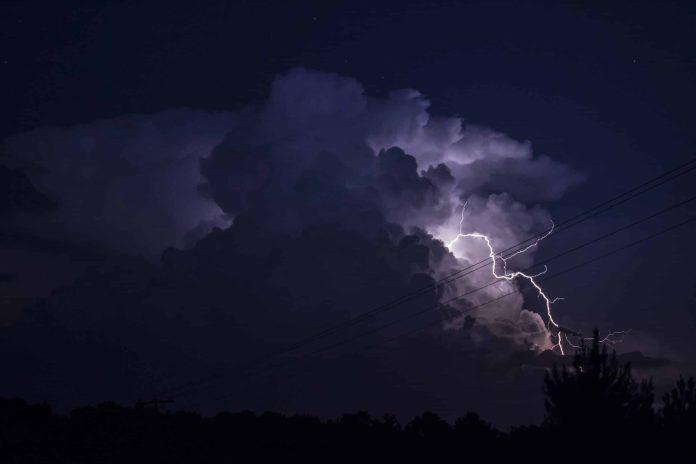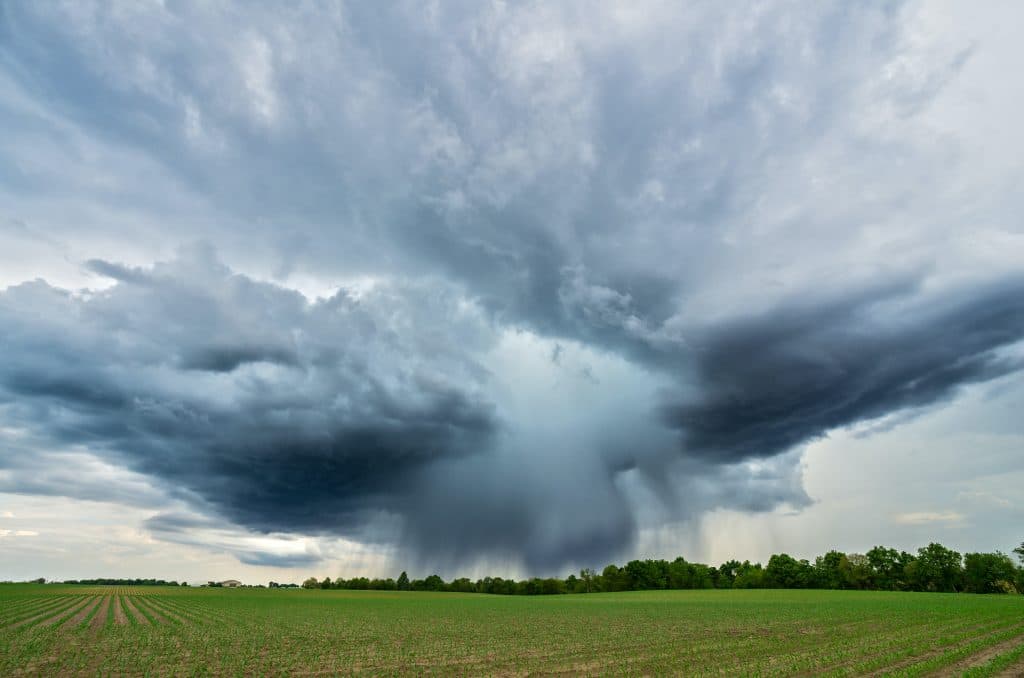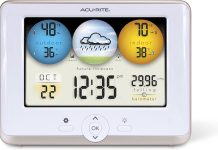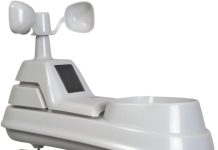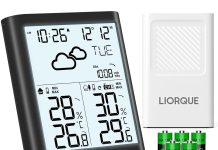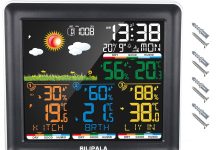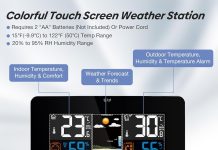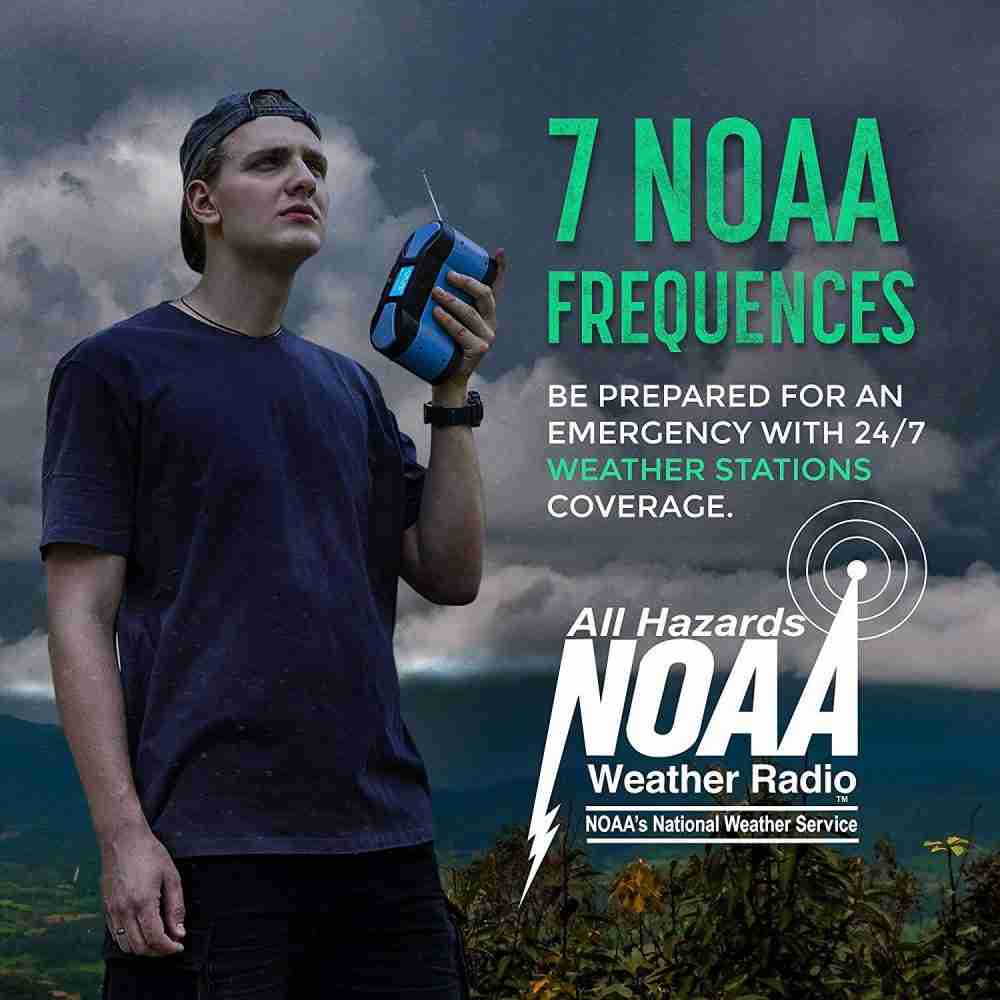Curious minds always seek the most reliable weather forecasts to stay one step ahead of Mother Nature’s whims.
In the constant quest for accuracy, two prominent names often emerge – AccuWeather and NOAA.
So, if you’ve ever wondered whether AccuWeather trumps NOAA in terms of precision, you’re in for an enlightening exploration of meteorological predictions.
Accuracy of AccuWeather and NOAA
Understanding the Weather Forecasting Process
When it comes to weather forecasting, accuracy is crucial. People rely on forecasts to plan their day, whether it’s determining what to wear or deciding whether to carry an umbrella. AccuWeather and NOAA (the National Oceanic and Atmospheric Administration) are two prominent entities in weather forecasting.
In this article, we will delve into the accuracy of both AccuWeather and NOAA and compare their methodologies, data sources, forecasting models, statistical analysis, verification methods, regional accuracy, user perception, reliability during extreme weather events, and pros and cons. By examining these aspects, we aim to analyze which service offers more incredible accuracy comprehensively.
Data Collection Methods
Accurate weather forecasting requires extensive data collection. Both AccuWeather and NOAA employ various methods to gather data. AccuWeather combines techniques, including ground-based observations, weather radars, and satellites. Additionally, they leverage user-contributed data, such as crowd-sourced weather reports, to supplement their observations.
As a government agency, NOAA has a vast network of weather stations and buoys strategically placed across the country. These stations collect invaluable weather data, one of the critical sources for NOAA’s forecasts. They also use advanced technologies such as satellites and weather balloons to enhance their data collection capabilities.
Quality Control Measures
Ensuring the accuracy and reliability of the collected data is of utmost importance. AccuWeather and NOAA implement robust quality control measures to eliminate discrepancies and errors. AccuWeather employs a comprehensive process that involves cross-checking data from multiple sources and verifying the consistency and accuracy of the information.
They have developed sophisticated algorithms to detect potential errors in the data collected and apply rigorous quality control standards before utilizing the data for forecasting. Similarly, NOAA has established rigorous quality control protocols to ensure data integrity. They have a team of skilled meteorologists who thoroughly review and analyze the collected data, eliminating anomalies or inconsistencies. These quality control measures are crucial in providing accurate and reliable forecasts to the public.
Accuracy Comparisons
Now, let’s explore how AccuWeather and NOAA compare regarding accuracy. It is important to note that forecasting accuracy can vary depending on the geographic location and weather conditions. AccuWeather has built a strong reputation for its accurate short-term forecasts, especially for highly populated areas.
Their expertise in combining different data sources and employing advanced forecasting models has proven beneficial in delivering precise forecasts. On the other hand, NOAA, being a government agency, has access to extensive resources and state-of-the-art technology. Their forecasts are widely trusted, particularly for severe weather events and long-term predictions. Both AccuWeather and NOAA focus on continuous improvement, investing in research and development to enhance their accuracy and reliability.
Analyzing Data Sources
AccuWeather: Data Sources and Methodologies
AccuWeather’s data collection approach involves combining traditional weather stations, weather radars, satellites, and advanced modeling techniques. They integrate these diverse data sources to create a comprehensive understanding of weather patterns.
AccuWeather emphasizes the importance of dataset diversity to minimize risk and enhance accuracy. By blending observational data, user-contributed data, and their own proprietary algorithms, they strive to provide the most accurate forecasts possible.
NOAA: Data Sources and Methodologies
As a government agency, NOAA has access to an extensive network of weather stations and buoys across the United States. This network, known as the National Weather Service, provides real-time observations and plays a critical role in NOAA’s forecasting process. In addition, NOAA also utilizes satellite imagery, weather balloons, and other advanced technologies to collect data from various atmospheric levels.
By combining these sources, NOAA aims to accurately analyze and predict weather patterns.
This image is the property of images.unsplash.com.
Forecasting Models
AccuWeather’s Forecasting Models
AccuWeather employs a range of sophisticated forecasting models to generate its forecasts. Their models incorporate statistical analysis, numerical weather prediction, and machine learning algorithms.
By analyzing historical weather data and accounting for various atmospheric factors, these models attempt to project future weather patterns. AccuWeather’s forecasting models are continually refined and updated to account for new data and advancements in meteorological science.
NOAA’s Forecasting Models
NOAA utilizes several forecasting models, with the Global Forecast System (GFS) being one of the most prominent. GFS utilizes a complex algorithm that simulates the Earth’s atmosphere, analyzing vast amounts of atmospheric data to generate forecasts. NOAA also utilizes other models, such as the North American Mesoscale (NAM) model, which focuses on high-resolution regional forecasts. These models are continuously improved and updated to provide the most accurate predictions possible.
Comparison of Forecasting Models
Comparing the forecasting models of AccuWeather and NOAA is challenging due to the complexity and proprietary nature of these models. Both organizations invest heavily in research and development to ensure their models are up-to-date and accurate. AccuWeather’s models excel in providing short-term forecasts, leveraging their diverse data sources and advanced algorithms. On the other hand, NOAA’s models are known for their accuracy in predicting severe weather events and long-term weather patterns. Ultimately, the choice between AccuWeather and NOAA may depend on the users’ specific forecasting needs and priorities.
Statistical Analysis and Verification
Verification Methods Used by AccuWeather
AccuWeather employs various statistical analysis and verification techniques to assess the accuracy of their forecasts. They compare their forecasts against observed weather conditions, using metrics such as Mean Absolute Error (MAE) and Root Mean Square Error (RMSE) to quantify the differences between predicted and actual values.
AccuWeather also conducts post-event analysis, evaluating their performance during severe weather events. Additionally, they leverage user feedback to validate and improve their forecasting models.
Verification Methods Used by NOAA
Like AccuWeather, NOAA uses statistical analysis and verification methods to assess forecast accuracy. NOAA compares its forecasts against actual weather observations, employing metrics such as MAE and RMSE to quantify errors. They comprehensively evaluate their forecasts’ performance, including severe weather events and long-term projections. NOAA incorporates feedback from meteorologists and experts to identify areas for improvement and enhance their forecasting accuracy.
Comparing Verification Results
Comparing the verification results of AccuWeather and NOAA can provide valuable insights into their respective accuracies. It is worth noting that accuracy can vary based on different metrics and timeframes. AccuWeather’s focus on short-term forecasts, particularly for highly populated areas, has resulted in high accuracy ratings in some evaluations.
NOAA’s emphasis on severe weather events and long-term forecasts contributes to their reputation for accuracy in those areas. Both organizations continuously strive to improve forecasting accuracy by analyzing verification results and implementing necessary adjustments.
This image is the property of images.unsplash.com.
Accuracy in Different Geographic Locations
AccuWeather’s Accuracy in Different Regions
AccuWeather prides itself on its capability to provide accurate forecasts for various geographic locations. Their emphasis on diverse data sources, advanced modeling, and statistical analysis allows them to tailor forecasts to specific regions. AccuWeather has invested in localized forecasting expertise, utilizing automated systems and expert meteorologists to ensure accuracy across different regions. This localized approach enhances accuracy and provides users with relevant and precise weather information.
NOAA’s Accuracy in Different Regions
With its vast network of weather stations and buoys across the United States, NOAA possesses comprehensive coverage in terms of geographic locations. This extensive network enables them to provide accurate forecasts for various regions. NOAA’s forecasting models and verification processes consider regional variations and unique weather patterns, contributing to their accuracy across different locations. Their localized focus on severe weather events and long-term projections enhances their credibility in specific regions.
Comparing Regional Accuracy
Comparing the regional accuracy of AccuWeather and NOAA is challenging due to the dynamic nature of weather patterns across various locations. AccuWeather’s localized forecasting expertise and utilization of diverse data sources contribute to their accuracy in specific regions.
With its extensive network and localized focus, NOAA is known for accurate forecasts across the United States. Ultimately, users’ preference for AccuWeather or NOAA may depend on the accuracy they experience in their specific location and the specific weather events they prioritize.
User Feedback and Perception
AccuWeather’s Reputation among Users
AccuWeather has gained a strong reputation among users for its accuracy and reliability. Many users appreciate the specificity and user-friendly nature of AccuWeather’s forecasts. AccuWeather’s integration of crowd-sourced data, combined with its advanced modeling techniques, has garnered confidence among users. AccuWeather’s positive reputation with users lends credibility to their accuracy claims.
NOAA’s Reputation among Users
As a government agency, NOAA is widely trusted by users for weather forecasts. Users appreciate the vast resources and expertise that NOAA brings to the table. NOAA’s forecasts are vital to public safety, especially during severe weather events. The consistent dissemination of accurate information has fostered trust among users, contributing to NOAA’s reputation.
Perception of Accuracy
Perception of accuracy can vary among users, as individual experiences and expectations influence perception. Some users may have had positive experiences with AccuWeather’s localized forecasts, leading them to perceive AccuWeather as more accurate. Others may prioritize NOAA’s accuracy during severe weather events, influencing their perception of accuracy. Users must evaluate their personal experiences and consider multiple factors when assessing the accuracy of AccuWeather and NOAA.
This image is the property of images.unsplash.com.
Reliability During Extreme Weather Events
AccuWeather’s Performance During Extreme Weather
AccuWeather’s performance during extreme weather events is essential to their accuracy. AccuWeather focuses on specialized forecasts for severe weather events, providing users with timely and reliable information. Their ability to issue warnings and alerts enables users to take necessary precautions in inclement weather. AccuWeather’s expertise in predicting severe weather conditions contributes to their reliability during extreme events.
NOAA’s Performance During Extreme Weather
As a government agency responsible for weather forecasting, NOAA places significant emphasis on the accuracy and reliability of its forecasts during extreme weather events. NOAA’s mission to protect lives and property during severe weather drives its commitment to providing accurate and timely information. NOAA employs a robust infrastructure and works closely with emergency management organizations to deliver reliable forecasts and warnings during extreme weather events.
Assessing Performance in Extreme Conditions
Assessing the performance of AccuWeather and NOAA during extreme weather conditions depends on multiple factors, including the type and severity of the event. AccuWeather’s specialized forecasts for severe weather events contribute to their reliability. NOAA’s focus on public safety and coordination with government agencies enhances their performance during extreme weather. Users should evaluate their personal experiences and consider multiple sources of information to determine the reliability of AccuWeather and NOAA during extreme conditions.
AccuWeather vs. NOAA: Pros and Cons
Advantages of AccuWeather
AccuWeather offers several advantages that users appreciate. Their specialization in short-term forecasts allows them to provide accurate and specific weather information for the near future. AccuWeather’s integration of crowd-sourced data and diverse data sources contributes to their accuracy and relevance. Their user-friendly interface and availability on multiple platforms make them accessible to many users.
Drawbacks of AccuWeather
While AccuWeather excels in short-term forecasting, some users may find their long-term forecasts less accurate. AccuWeather’s business model also relies on advertising revenue, which may influence the presentation and prominence of certain information. Users should be mindful of this potential bias when utilizing AccuWeather’s services.
Advantages of NOAA
NOAA, as a government agency, offers several advantages to users. Their extensive weather stations and buoys network provide comprehensive coverage across the United States. NOAA’s focus on public safety and collaboration with emergency management organizations ensures reliable and timely information during severe weather events. NOAA’s free access to weather data and forecasts allows users to make informed decisions without financial constraints.
Drawbacks of NOAA
One potential drawback of NOAA is its emphasis on severe weather events and long-term forecasts, which may result in less-detailed short-term forecasts. Additionally, the abundance of data and technical terminology in NOAA’s forecasts may be overwhelming for some users who prefer a more straightforward presentation.
Professional Use and Decision-Making
Use of AccuWeather by Professionals
AccuWeather is widely utilized by professionals across various industries that rely on accurate weather forecasts. Agriculture, transportation, construction, and outdoor event planning are just a few sectors that depend on AccuWeather’s accurate weather information. The specific and localized forecasts provided by AccuWeather assist professionals in making informed decisions related to their respective fields.
Use of NOAA by Professionals
NOAA is a crucial resource for professionals in many industries. Its comprehensive coverage, robust infrastructure, and reliable forecasts make it a go-to source for agriculture, aviation, emergency management professionals, and more. NOAA’s specialized forecasts and access to historical weather data allow professionals to plan operations, mitigate risks, and ensure public safety.
Decision-Making Processes
The decision-making processes of professionals using AccuWeather and NOAA involve evaluating the accuracy, specificity, and relevance of the provided forecasts. Professionals rely on weather forecasts to make critical operations, finances, and safety decisions. Depending on their specific needs, professionals will consider accuracy, geographical coverage, user-friendly interfaces, and specialized services to determine whether AccuWeather or NOAA better meets their requirements.
Conclusion
AccuWeather and NOAA are esteemed entities in weather forecasting, providing valuable services to users worldwide. While both organizations prioritize accuracy, they differ in data collection methods, forecasting models, verification processes, and regional accuracy. AccuWeather excels in short-term forecasts and localization, leveraging diverse data sources and user-contributed data.
As a government agency, NOAA offers comprehensive coverage, specialized forecasts, and a focus on public safety. Users’ preference between AccuWeather and NOAA may depend on their specific needs, regional considerations, and their importance on short-term accuracy, long-term forecasts, and severe weather events.
Ultimately, users should evaluate their personal experiences, consider multiple sources, and rely on the forecasts’ accuracy, reliability, and relevance to make informed decisions.

